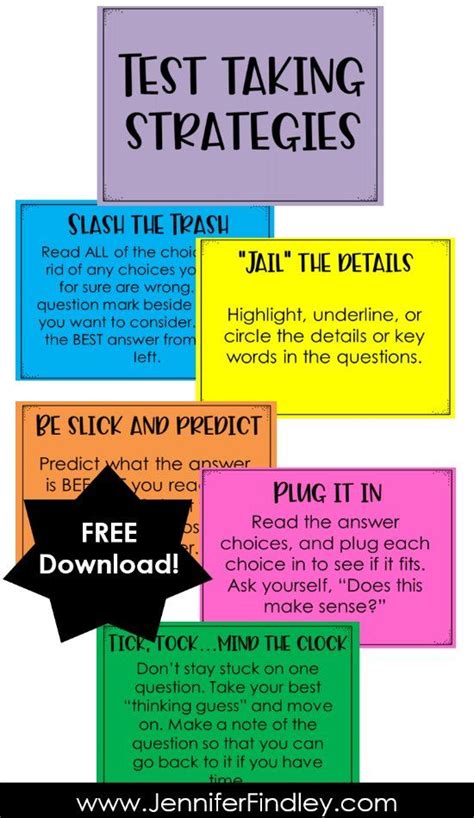How to Improve Your Test-Taking Skills

Test-taking can be one of the most stressful aspects of a student's academic journey. Whether you're preparing for a midterm, a final exam, or a standardized test, the pressure to perform well can feel overwhelming. Fortunately, with the right strategies and mindset, you can significantly improve your test-taking skills. Here are several practical tips to help you boost your performance and reduce anxiety when it's time to face the test.
Prepare Well in Advance
Effective test-taking begins long before you sit down for the exam. Cramming the night before is rarely an effective strategy, and it can increase your stress levels. Instead, aim to start your preparation weeks in advance by breaking your study material into manageable sections.
Key Tips:
- Create a Study Schedule: Set aside specific times each day to review material. Use a calendar or planner to map out when you'll study each topic.
- Practice Regularly: Engage in regular self-testing, as research has shown that active recall is one of the best ways to reinforce memory.
- Use a Variety of Study Methods: Mix things up with techniques like summarizing notes, creating flashcards, and taking practice tests. This multi-faceted approach will help you retain information better.
Understand the Test Format
Knowing the format of the test is crucial to your preparation. Tests can vary in structure, including multiple-choice, short answer, essay, or problem-solving questions. Understanding how the test is structured will allow you to tailor your study efforts accordingly.
Key Tips:
- Review Past Tests: If possible, review previous tests or practice exams to get a sense of what types of questions are commonly asked.
- Ask Your Teacher or Instructor: Don’t hesitate to ask about the test format, including how many questions there will be, what topics are covered, and whether there are any specific instructions for answering.
Stay Organized
When it comes to tests, organization is key. Being organized will help you stay calm and focused during your study sessions and when you’re actually taking the test. Keep your study materials neat and easily accessible, and make sure you have a strategy for tackling the test itself.
Key Tips:
- Use Study Guides and Outlines: Create outlines of the material or use study guides to ensure you’re covering all the necessary content.
- Plan Your Time: Practice time management by setting aside a specific time for each section of the test. For example, if you're taking a multiple-choice section, allocate time for reviewing each question carefully.
Develop Test-Taking Strategies
Test-taking is not just about knowing the material; it's about how you approach the questions. Developing smart test-taking strategies can help you maximize your score and make the most of the time you have.
Key Tips:
- Read Instructions Carefully: Always begin by reading the instructions thoroughly. It’s easy to misinterpret a question or overlook important details if you're rushing.
- Start with Easy Questions: If you're unsure about a particular question, move on to the ones you find easier and come back to the difficult ones later. This ensures you’re not wasting precious time on questions that you might not be able to answer immediately.
- Use Process of Elimination: In multiple-choice questions, eliminate the obviously wrong answers to increase your chances of choosing the correct one.
- Don’t Overthink Questions: Stick to your first instinct unless you find strong evidence that your initial answer was incorrect.
Manage Test Anxiety
Test anxiety is a common challenge that can hinder performance. Learning how to manage this anxiety is crucial to staying focused and calm during the test. Stress can cloud your thinking and lead to mistakes, but with the right techniques, you can stay relaxed and clear-headed.
Key Tips:
- Practice Relaxation Techniques: Before the test, practice deep breathing exercises, meditation, or positive visualization to calm your nerves.
- Get Plenty of Rest: Ensure you're well-rested the night before the exam. Sleep is vital for memory consolidation and cognitive function.
- Eat a Balanced Meal: Don’t skip breakfast! Eating a healthy meal before the test can improve your concentration and energy levels.
- Stay Positive: Instead of focusing on the worst-case scenario, remind yourself that you’re prepared and that you can handle whatever the test throws at you.
During the Test: Focus and Time Management
Once the test begins, maintaining focus and managing your time effectively are critical. Avoid distractions, and stay aware of the time limits.
Key Tips:
- Keep Track of Time: Periodically glance at the clock to ensure you're pacing yourself appropriately. For longer tests, divide your total time by the number of sections to ensure you don’t spend too much time on any one part.
- Stay Calm if You Get Stuck: If you find yourself stuck on a particular question, don’t panic. Take a deep breath, and try to break the question down into smaller, more manageable parts. If you’re still stuck, move on and come back to it later.
- Review Your Answers: If time permits, review your answers before turning in your test. Double-check for careless mistakes or questions you might have missed.
Learn from Each Test
Each test provides valuable feedback. Afterward, take time to review what went well and what could be improved. This reflection can help you refine your approach for the next exam.
Key Tips:
- Analyze Mistakes: If you made mistakes, identify why you got a question wrong. Was it due to a lack of preparation, misreading the question, or nervousness?
- Ask for Feedback: If you're unclear about why you missed certain questions, ask your teacher for clarification or guidance.